John Gannon
How to Prevent Pests From Entering Through Dry Drains
If you’ve ever seen a bug crawl out of a sink or smelled something foul from an unused drain, you’re not imagining things. Insects, sewer gases, and even rodents can find their way into your home through dry or unused drains.
In fact, one of the most overlooked ways pests enter your home is through dry plumbing traps—especially in laundry rooms, guest bathrooms, or basement floor drains that rarely get used.
Here’s what causes it—and how to stop it before it becomes a bigger problem.
🪤 Why Do Pests Come Through Drains?
Inside every drain is a curved pipe known as a P-trap. Its job is to hold water, which acts as a barrier to keep sewer gases and small pests from coming up the pipe.
But if that drain isn’t used for a few weeks (or even days in dry weather), the water in the trap evaporates. Once that happens, it’s an open invitation for:
- Cockroaches
- Drain flies
- Silverfish
- Spiders
- Sewer gas odors
In some cases, mice and rats have even been known to enter homes through the sewer system and come up through dry traps!
🧰 How to Prevent Pests from Coming Through Your Drains
1. Run Water in Unused Drains Weekly
Flush each unused sink, tub, shower, and floor drain with cold water for 30–60 seconds weekly. This keeps the trap filled and functioning.
2. Add Mineral Oil to Slower-Evaporating Drains
For drains you don’t use often (like basement floors), pour about a cup of water down the drain, followed by a few tablespoons of mineral oil. The oil slows down evaporation and keeps the water seal intact longer.
3. Use Drain Plugs or Caps
If you know a sink or tub won’t be used for a while (like a vacation home or guest bathroom), seal it with a drain plug or cap to block pests entirely.
4. Install a Trap Primer
For long-term protection, especially in basement floor drains, a trap primer is a small device that automatically adds water to the trap as needed. It’s a professional installation but worth the investment in pest prevention.
5. Get a Plumbing Inspection if You Notice Odors or Bugs
If pests are already showing up or there’s a foul smell coming from your drain, it may be more than just a dry trap. You could have cracked pipes, leaks, or broken venting—issues that only a licensed plumber should address.
🏡 Reliable Plumbing: Your Partner in Drain Health
At Reliable Plumbing & Sewer Service Inc., we help Tinley Park homeowners prevent costly and creepy surprises from neglected plumbing systems. Whether it’s identifying dry traps, installing trap primers, or fixing sewer line issues—we’ve got your back.
🧼 Keep Your Drains Full and Your Home Pest-Free
Don’t let dry drains invite unwanted guests into your home. A few simple habits—or the right plumbing solutions—can make all the difference.
📞 Call Reliable Plumbing & Sewer Service Inc. at (708) 633-9614
or Schedule Your Drain Checkup Online today.

Build Trust for Future Customers When someone in Tinley Park or the surrounding area searches online for a plumber, seeing real customer reviews helps them feel confident they’ll get reliable, honest service — not just marketing promises. Reviews act like word-of-mouth from people who actually used Reliable Plumbing , and that kind of social proof often matters more than fancy ads. For a family-owned business like Reliable Plumbing, which has served the South Chicago suburbs since 1963, every honest review reinforces that decades-long reputation. Help Other Neighbors Make Smart Choices Many homeowners rely on reviews when choosing a plumbing company — especially if they’ve never called a plumber before. Reviews help answer questions like: Are they punctual? Do they clean up after the job? Do they fix problems thoroughly? When you post a review, you give future customers a realistic sense of what they can expect from Reliable Plumbing — from response time and workmanship quality to professionalism and customer care. Boost Online Visibility — So Reliable Plumbing Is Easy to Find Online reviews are vital for local search. Search engines like Google factor in review quality, quantity, and recency when deciding which businesses show up first for queries like “plumber near Tinley Park.” A higher ranking means more visibility, more calls, and ultimately more people in our community discovering Reliable Plumbing when they need help. Encourage Continuous Improvement & Accountability Leaving a review is not only beneficial when things go well, it also helps highlight areas where service can improve. Honest feedback gives Reliable Plumbing a chance to see what works and where adjustments are needed. Over time, that promotes a culture of quality and responsiveness. When customers take the time to review, they contribute to maintaining high standards and help keep the company accountable to its commitment to quality service since 1963. Giving Back to a Local Business That Serves You Reliable Plumbing serves our communities, Tinley Park, Orland Park, Oak Lawn, Mokena, and nearby suburbs. Writing a review is a simple way to give back and support a local, family-owned business you’ve trusted. It helps ensure that they can continue delivering quality plumbing services to you and your neighbors in the future. ______________________________________________________________________________________________________________________________________ 💬 What Makes a Great Review Mention which service you used (water heater installation, drain cleaning, sump pump, etc.). Real details help future customers with similar needs. Note timeliness and professionalism. Did the plumbers arrive on time? Did they clean up after the job? Share results and satisfaction. Was the problem fixed? Did the service meet or exceed your expectations? Be honest and specific . Authentic feedback, whether glowing or constructive, is more valuable than a vague “great job.” Consider leaving the review soon after the job, while the experience is fresh. ________________________________________________________________________________________________________________________ Ultimately Leaving a review for Reliable Plumbing & Sewer Service Inc. isn’t just about praising good work, it’s a meaningful way to help neighbors, support a trusted local business, and ensure future customers know what to expect. Your honest feedback builds trust, strengthens the company’s presence online, and helps maintain high service standards. If you’ve used Reliable Plumbing before, even a simple sentence about your experience can go a long way.
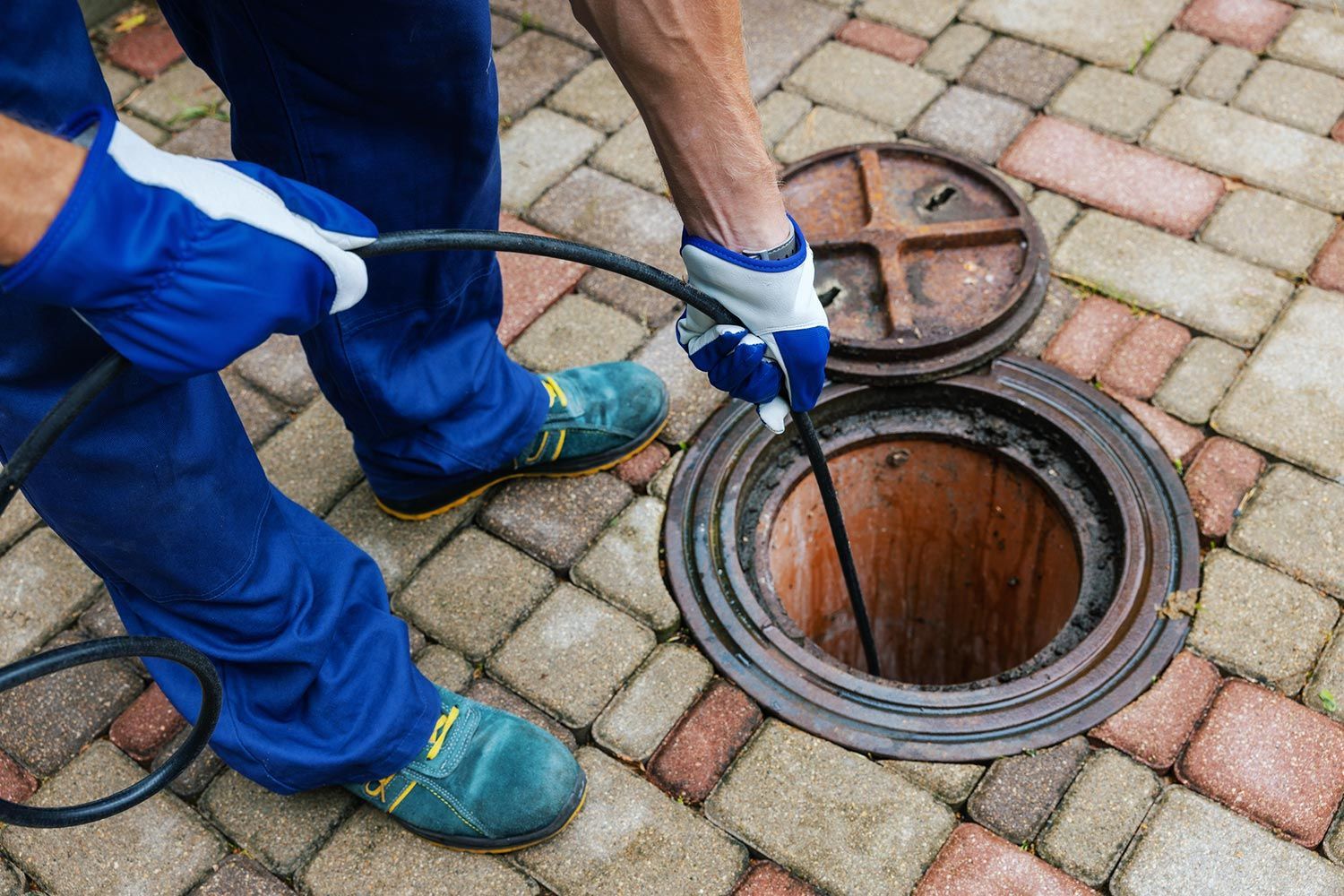
When you’re dealing with a slow drain, recurring clogs, or sewer backup, the last thing you want is guesswork. That’s where a sewer and drain line camera inspection comes in. This advanced plumbing technology allows our team at Reliable Plumbing & Sewer Service Inc. to look directly inside your pipes and find the exact cause of your problem—without digging up your yard. Whether you’re a homeowner in Tinley Park or in the nearby southwest suburbs, knowing what’s happening inside your sewer system can save you thousands of dollars in unnecessary repairs. ______________________________________________________________________________________________________________________________________________________________________ 🔍 What Is a Sewer Camera Inspection? A sewer camera inspection involves using a high-resolution waterproof camera attached to a flexible cable. Our licensed plumbers carefully feed the camera through your home’s clean-out, drain, or sewer access point. As it travels through your pipes, it transmits a live video feed that shows the condition of your plumbing system in real time. This allows us to detect: Clogged or collapsed sewer lines Tree root intrusion Grease or sludge buildup Pipe misalignment or corrosion Foreign objects lodged in the line Early signs of leaks or cracks The video footage helps determine whether you need drain cleaning , sewer line repair, or full pipe replacement —and ensures we only recommend the right solution for your situation. ______________________________________________________________________________________________________________________________________________________________________ 💧 Why You Might Need a Drain Line Camera Inspection You don’t have to wait for a plumbing emergency to schedule one. A sewer camera inspection is helpful in many situations: Slow or frequently clogged drains Sewer odor coming from sinks, tubs, or basement drains Sewage backup in toilets or floor drains Older homes with cast iron or clay pipes Before buying or selling a home (a smart step in a home inspection) After heavy rain or flooding that could shift or damage underground pipes If your home was built more than 30 years ago, a sewer camera inspection is one of the best preventative maintenance services you can schedule. ______________________________________________________________________________________________________________________________________________________________________ ⚙️ How Sewer Camera Inspections Work Here’s what to expect during your appointment with Reliable Plumbing & Sewer Service Inc.: Access the line . We locate your clean-out or drain entry point. Insert the camera . Our technician feeds the waterproof camera through your line. Live inspection . We watch the feed on a monitor, identifying any blockages or damage. Diagnosis and recommendations . You’ll see the footage yourself and receive an honest, detailed explanation of what’s going on. Plan of action . If a problem exists, we’ll suggest the best and most cost-effective drain cleaning or sewer line repair option. Because this process is non-invasive, there’s no need for unnecessary digging or damage to your landscaping. ______________________________________________________________________________________________________________________________________________________________________ 🚫 Common Problems Found During Sewer Camera Inspections During hundreds of inspections across Tinley Park and the surrounding area, we’ve found that most sewer and drain issues fall into a few categories: Tree Root Intrusion: Roots from nearby trees enter through pipe joints and cause major blockages. Pipe Corrosion or Cracking: Common in older cast-iron or clay pipes. Grease and Soap Buildup: Kitchen drain residue can harden over time. Collapsed or Offset Pipes: Often caused by shifting soil, freeze/thaw cycles, or aging materials. Foreign Objects: Kids’ toys, paper towels, hygiene products, or debris lodged in the line. Our camera inspections identify these issues precisely, helping avoid guesswork and unnecessary costs. ______________________________________________________________________________________________________________________________________________________________________ ✅ Benefits of a Sewer Camera Inspection Pinpoint accuracy: No digging or unnecessary pipe replacement. Save money: Identify small problems before they turn into costly repairs. Peace of mind: Perfect for homebuyers who want to avoid hidden sewer issues. Proof of problem: You’ll see the video footage yourself—no surprises. Faster repairs: Once we identify the issue, we can recommend the right fix immediately. ______________________________________________________________________________________________________________________________________________________________________ 🧰 Why Choose Reliable Plumbing & Sewer Service Inc. As a trusted Tinley Park plumbing company, we specialize in honest, dependable sewer and drain services. Homeowners choose us because: We use state-of-the-art sewer inspection cameras and equipment. Our plumbers are fully licensed, insured, and experienced. We provide clear, upfront estimates—no hidden fees. We handle everything from drain cleaning to sewer line repair and replacement. We’re local and responsive plumbing services when you need us most. ______________________________________________________________________________________________________________________________________________________________________ 🏡 Schedule Your Sewer Camera Inspection Today If you’re noticing slow drains, recurring clogs, or unusual odors, don’t wait until it turns into a major plumbing emergency. Schedule a professional sewer and drain line camera inspection with Reliable Plumbing & Sewer Service Inc. today. 📞 Call (708) 633-9614 or contact us online to book your appointment. We proudly serve Tinley Park, Orland Park, Oak Lawn, Mokena, and surrounding Chicagoland suburbs—helping homeowners protect their plumbing with expert service and honest advice.
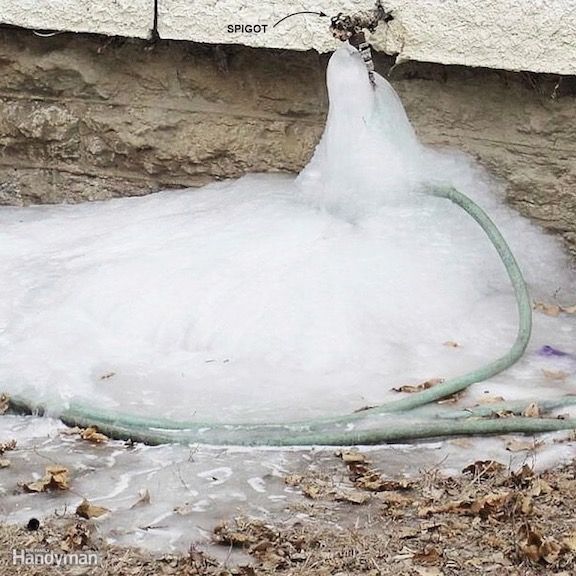
As the temperatures drop in the Chicagoland area, Reliable Plumbing & Sewer Service Inc. wants to remind homeowners that now is the time to remove and store your outdoor garden hoses for the season. It’s a simple step that can save you from major plumbing headaches — and costly repairs — once winter hits. Why Disconnecting Hoses Matters When a hose is left attached to an outdoor faucet (also called a hose bib), water can remain trapped inside the faucet and connected pipes. Once temperatures dip below freezing, that water can freeze, expand, and cause the pipe or faucet to crack or burst — even inside your home’s walls. That kind of damage can lead to: Flooding in your basement or crawl space Costly water damage to drywall and insulation The need for emergency plumbing repairs How to Protect Your Outdoor Faucets Here are a few easy steps to prevent problems this winter: Disconnect all garden hoses from outdoor spigots. Drain any remaining water from the hose before storing it. Shut off the interior valve (if your home has a dedicated shutoff for outdoor faucets). Open the exterior faucet to let any remaining water drain out. Consider installing a frost-free hose bib if you’ve had freezing issues in the past. Stay Ahead of Winter Plumbing Problems Taking a few minutes now can prevent frozen pipes and expensive water damage later. If you’re not sure whether your outdoor faucets are properly protected — or if you’ve had issues in previous winters — our team can help. 👉 Call Reliable Plumbing & Sewer Service Inc. today at 708-633-9614 to schedule a seasonal plumbing inspection or winterization service.
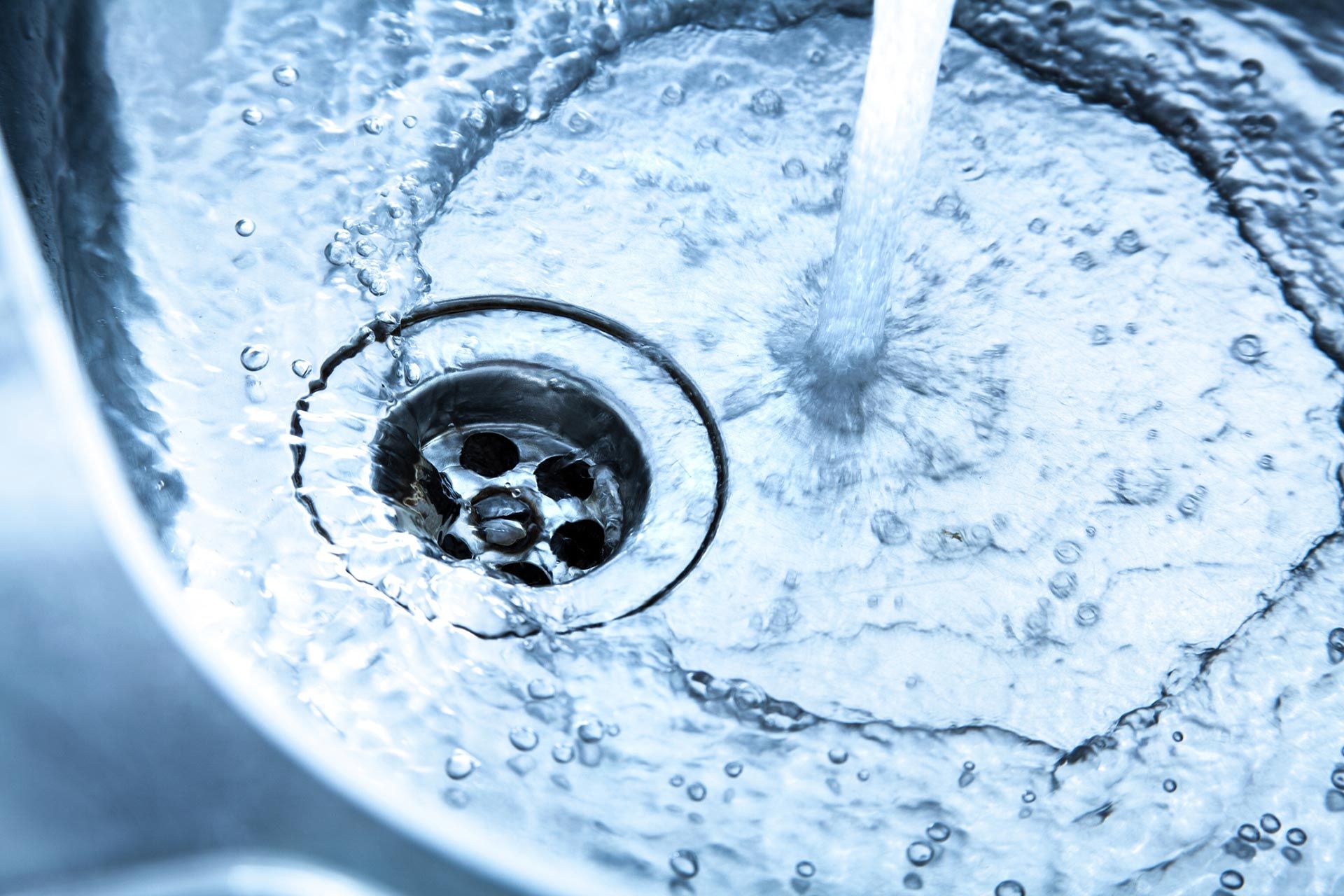
It’s easy to think of your kitchen sink as a catch-all for cooking messes. After all, you rinse pans, wash dishes, and clean up spills there every day. But one of the most common (and damaging) mistakes homeowners make is pouring grease, oil, and fat down the drain. At Reliable Plumbing & Sewer Service Inc., we’ve seen firsthand how these everyday kitchen byproducts create serious problems for kitchen drains, garbage disposals, and even sewer lines. Here’s why grease is the #1 enemy of your plumbing system—and how you can protect your home. Why Grease, Oil & Fat Cause Drain Problems When grease, cooking oil, or animal fat is hot, it’s liquid. But as soon as it cools, it hardens and sticks to the inside of your pipes. Over time, this sticky buildup traps food particles, soap scum, and debris. Eventually, the inside of your pipes becomes narrower and narrower until you end up with a clogged kitchen drain. Left untreated, grease buildup can lead to: Slow-draining sinks Foul odors coming from the drain Frequent need for drain cleaning services Backups that affect multiple fixtures Sewer line blockages that require costly repairs The Bigger Picture: Sewer Line Issues Grease buildup doesn’t just stay in your kitchen drain. It can travel into your main sewer line , where it mixes with other debris and forms what plumbers call a “fatberg.” These dense clogs are extremely tough to remove and often require professional sewer line cleaning or repair. In severe cases, grease-related clogs can cause sewage to back up into your home—creating a hazardous mess and costly cleanup. Common Myths About Pouring Grease Down the Drain “If I run hot water, it will wash the grease away.” False. Hot water only pushes the grease further down the line, where it cools and hardens. “Dish soap breaks down grease, so it’s safe.” Dish soap may break grease into smaller pieces temporarily, but eventually, it still sticks to your pipes. “My garbage disposal will take care of it.” Not true. Disposals grind food, but they don’t dissolve grease. In fact, grease can damage the disposal over time. How to Properly Dispose of Grease, Oil & Fat Pour it into a container. Use an empty can, jar, or disposable container to collect grease after cooking. Let it solidify. Once it hardens, throw the container into the trash. Wipe pans with paper towels. Before washing, wipe away as much grease as possible. Recycle cooking oil. Many communities offer oil recycling programs—check with your local waste department. Professional Help for Grease-Related Clogs If you already have slow drains or a stubborn clog, it’s time to call a professional. At Reliable Plumbing & Sewer Service Inc. , our expert team uses safe and effective methods to remove grease buildup and restore your plumbing. Services include: Kitchen drain cleaning Sewer camera inspections to locate grease blockages Sewer line repair or replacement if grease has caused permanent damage Protect Your Home with Reliable Plumbing Your kitchen drain is one of the hardest-working parts of your plumbing system. Don’t let grease, oil, and fat ruin it. With regular maintenance and smart disposal habits, you can avoid costly repairs and enjoy a healthier, odor-free plumbing system. 📞 Call Reliable Plumbing & Sewer Service Inc. today for professional drain cleaning and plumbing services in Tinley Park , Orland Park , Mokena , Oak Lawn and the surrounding Chicagoland area. We’re here to keep your drains clear, your pipes safe, and your kitchen running smoothly.
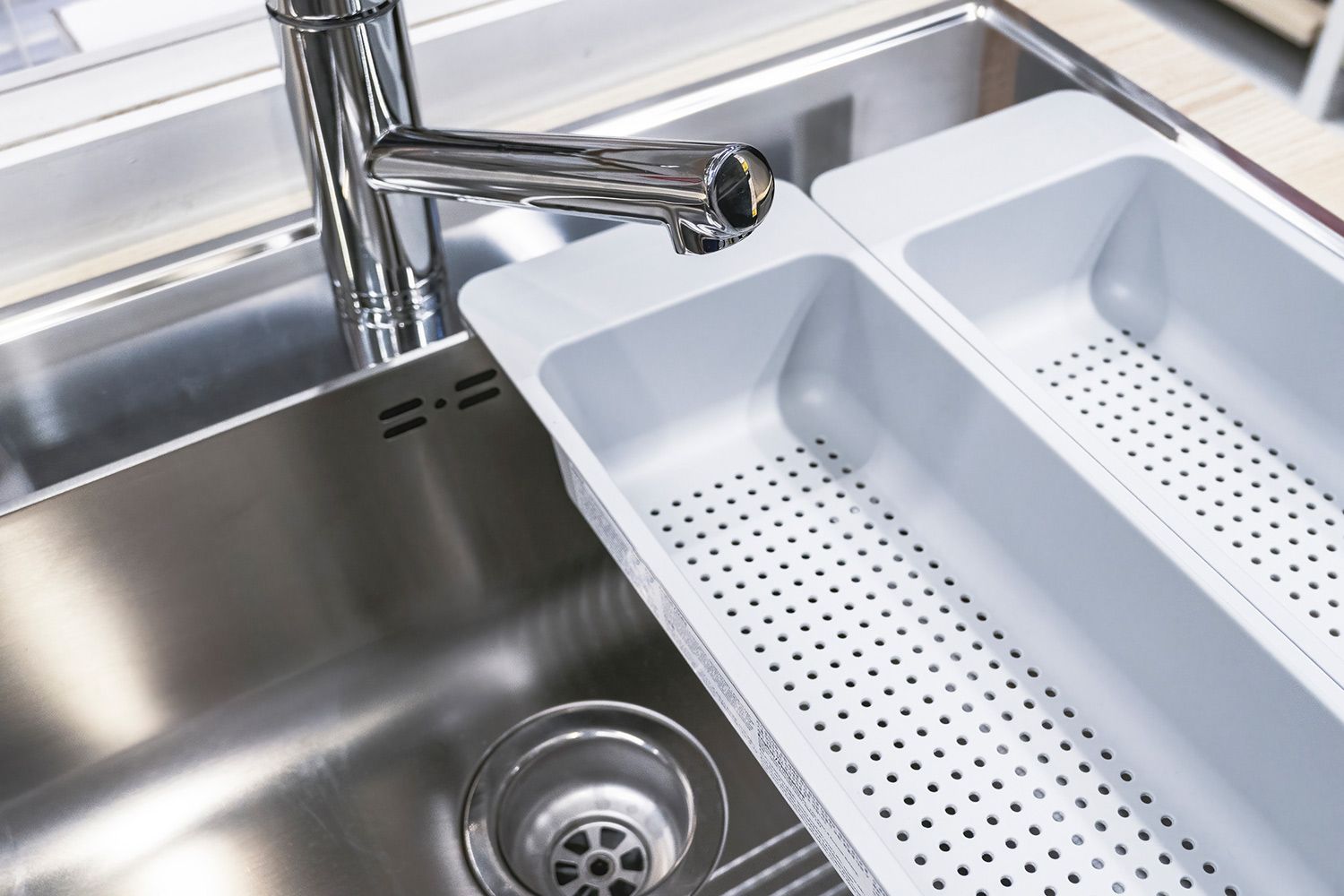
When homeowners think about boosting their property value, they often think of new paint, flooring, or kitchen remodels. But did you know well-chosen bathroom and kitchen plumbing upgrades —especially faucets, sinks, and tubs—can deliver a surprisingly strong return on investment? Replacing dated fixtures with modern, efficient ones not only enhances aesthetics, it signals to buyers that the home has been well maintained. Below, we walk through the top plumbing upgrades that increase home value, keys to choosing the right materials, and how Reliable Plumbing & Sewer Service Inc. can help you get the most from your investment. Why Plumbing Fixtures Matter in Home Value First impressions count. Faucets, sinks, and tubs are focal points in kitchens and baths. High-end, cohesive fixtures enhance the visual appeal. Functionality and durability. Cheap or worn fixtures often show leaks, corrosion, or low performance. Replacing them mitigates early maintenance concerns for prospective buyers. Water efficiency sells. Many modern fixtures use less water without sacrificing performance, appealing to eco-conscious buyers looking to reduce monthly bills. Perceived quality. When buyers see quality plumbing fixtures, they often assume the rest of the plumbing system is in good shape. According to Real Simple, upgrading faucets, sinks, and toilets can improve your home’s sale value, with fixtures contributing approximately 0.61% in added value in a sale scenario. How Much Value Can You Add? Bathroom and kitchen renovations historically offer high returns on investment. Many contractors and real estate agents note that even modest plumbing upgrades can yield 85–95% ROI when selling. Even smaller upgrades like replacing a faucet, sink, and tub in one bathroom can provide noticeable value in a resale context. As Real Simple notes, replacing faucet and sink fixtures can add ~1.12% to home value (across kitchen & baths) in certain markets. Local Tips & Considerations for Tinley Park / Chicagoland Homes Style alignment with homes in the area: Many homes in Tinley Park and surrounding areas are traditional or transitional in style. Choose fixtures that match (e.g. brushed nickel, chrome, – avoid ultra-trendy finishes that date quickly). Cold-weather durability: Ensure tub surrounds and installation methods can handle freeze/thaw cycles without vulnerability to leaks. Water quality and hard water: Use corrosion-resistant finishes and materials. Recommend that fixture manufacturers or installers consider water softeners or filters if needed. Permit & code compliance: Some plumbing upgrades—especially in bathrooms—may require permits. Always use a licensed plumber to stay compliant with building codes. Why Hire Reliable Plumbing & Sewer Service Inc. Upgrading your faucets, sinks, and tubs can really move the needle on your home’s appeal and long-term value—but only if done right. Here’s why homeowners in Tinley Park trust us: We are fully licensed plumbers who understand local plumbing codes and permit requirements. We source quality fixtures and recommend products that hold up long-term (durable finishes, water-efficient models). Our installation standards reduce risk of leaks, faulty performance, or future repairs. We offer comprehensive bathroom plumbing services —from demo to final fixture installation to finishing touches. We back our work with guarantees and support, giving buyers confidence that your home’s plumbing has been well maintained. Call to Action + Next Steps Thinking about upgrading faucets, sinks, or tubs? Here's how to get started: Do a room inventory. Which rooms would benefit most from fixture updates? Pick cohesive styles & finishes. Create a design board or pin inspiration photos. Contact Reliable Plumbing & Sewer Service Inc. for a professional estimate. We can help you select from high-quality, warranty-backed fixtures, and explain cost/benefit. Schedule installation. Let our team handle demo, plumbing connections, waterproofing, finishing touches—all correctly and efficiently. A well-executed plumbing upgrade transforms each bathroom or kitchen from “just functional” to “wow.” It not only improves daily living but gives your home a competitive edge when the time comes to sell. Reach out today—let us help you increase your home’s value, one faucet at a time.
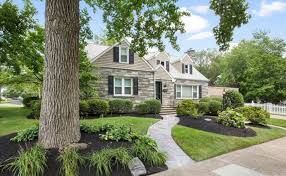
When it comes to creating curb appeal, landscaping plays a huge role in making a house feel like home. But what many homeowners don’t realize is that trees, shrubs, and even garden designs can have a major impact on your sewer lines and outdoor plumbing systems . At Reliable Plumbing & Sewer Service Inc., we often see plumbing problems that start right in the yard. Here’s what you should know before planting, digging, or making changes to your landscaping. Tree Roots and Sewer Line Damage Tree roots are naturally drawn to moisture. If there’s even the smallest crack in your sewer line, roots will find it. Over time, they grow inside the pipe, causing blockages, backups, or even collapsed lines. Homeowners often notice the warning signs of a clogged sewer line such as: Slow drains throughout the house Gurgling sounds from toilets Sewage odors near drains or in the yard Frequent need for drain cleaning Once roots have invaded, the only long-term solution may be professional sewer line repair or replacement . Soil Shifting and Drainage Issues Landscaping projects that involve adding soil, removing large trees, or grading the yard can affect the stability of your underground pipes. Heavy soil or improper drainage may put stress on outdoor plumbing lines. This can cause cracks, misalignment, and leaks. Proper grading ensures that rainwater flows away from your home and foundation—reducing the risk of water pooling near sewer cleanouts or sump pump discharge lines. Sprinkler Systems and Outdoor Fixtures Sprinkler systems, hose bibs, and outdoor sinks are convenient, but they require careful installation to avoid leaks and cross-connections. If irrigation systems are tied into your home’s water supply, a licensed plumber should install backflow prevention devices. This protects your drinking water from contamination caused by changes in water pressure. Preventing Sewer Line and Outdoor Plumbing Problems Here are some steps you can take to protect your home: Choose the right trees and shrubs . Avoid species with aggressive root systems near sewer lines. Schedule regular sewer inspections . A camera sewer inspection can spot issues before they become emergencies. Know where your lines run. Before planting or digging, check with your utility company or plumber for pipe locations. Call for professional help . If you suspect damage, don’t wait. Contact a trusted Tinley Park plumber for fast, reliable plumbing services. Call Reliable Plumbing & Sewer Service Inc. Today If your landscaping is causing problems with your sewer line or outdoor plumbing , don’t wait until you have a messy backup in your yard or basement. Our experienced team provides expert sewer line repair, drain cleaning, and plumbing services throughout Tinley Park and the surrounding Chicagoland area. 📞 Call us today to schedule a sewer inspection or service appointment and keep your yard—and your plumbing—running smoothly.
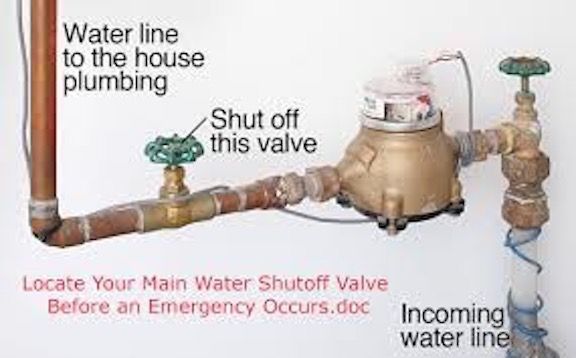
Every homeowner should know where their main water shut-off valve is located. In a plumbing emergency—like a burst pipe or major leak—shutting off the water quickly can mean the difference between a minor inconvenience and thousands of dollars in damage. At Reliable Plumbing & Sewer Service Inc. , we’ve helped countless Tinley Park homeowners during emergencies, and one of the first questions we ask is: “Do you know where your shut-off valve is?” Unfortunately, many don’t. Here’s how to find it, how to protect it, and why it’s so important. Why Your Shut-Off Valve Matters Stops Water Damage Fast: Quickly turning off the water can prevent flooding, ruined flooring, and mold growth. Helps During Repairs: If you’re replacing fixtures or repairing a leak, shutting off the water ensures safety. Peace of Mind: Knowing exactly where it is—and that it works—means you’re prepared in an emergency. How to Locate Your Main Water Shut-Off Valve The valve is usually located where the main water line enters your home. Common places to check include: Basement or Crawl Space: Near the front foundation wall. Utility Room: Close to your water heater or furnace. Attached Garage: On the wall facing the street. Outside by the Foundation: In warmer climates, it may be in a covered box near an exterior wall. 💡 Pro Tip: The shut-off valve is typically on the side of your house facing the street, since that’s where the municipal water supply connects. Types of Shut-Off Valves Ball Valve: Has a lever handle. Turn the handle 90 degrees to shut off water. Gate Valve: Has a round wheel handle. Turn clockwise until it stops. These are more common in older homes. How to Protect and Maintain Your Shut-Off Valve 1.Keep It Accessible Don’t block the valve with storage boxes or furniture—make sure you can get to it quickly in an emergency. 2.Exercise the Valve Turn the valve on and off once or twice a year. This prevents it from seizing up. 3.Insulate in Cold Weather If your valve is in a basement or crawl space that gets cold, wrap it with pipe insulation to prevent freezing. 4.Label It Clearly If you’re not the only one living in the home, place a tag on the valve so everyone knows what it is and how to use it. When to Call Reliable Plumbing If your shut-off valve is corroded, leaking, or won’t budge, it’s time for a professional replacement. We can install a new, reliable valve that operates smoothly and gives you peace of mind. 💡 Tip from Our Team: Practice shutting off your valve before an emergency happens—so when the time comes, you’ll know exactly what to do. 📞 Call Reliable Plumbing & Sewer Service Inc. at (708) 633-9614 or schedule service online if you need help locating, testing, or replacing your main shut-off valve.
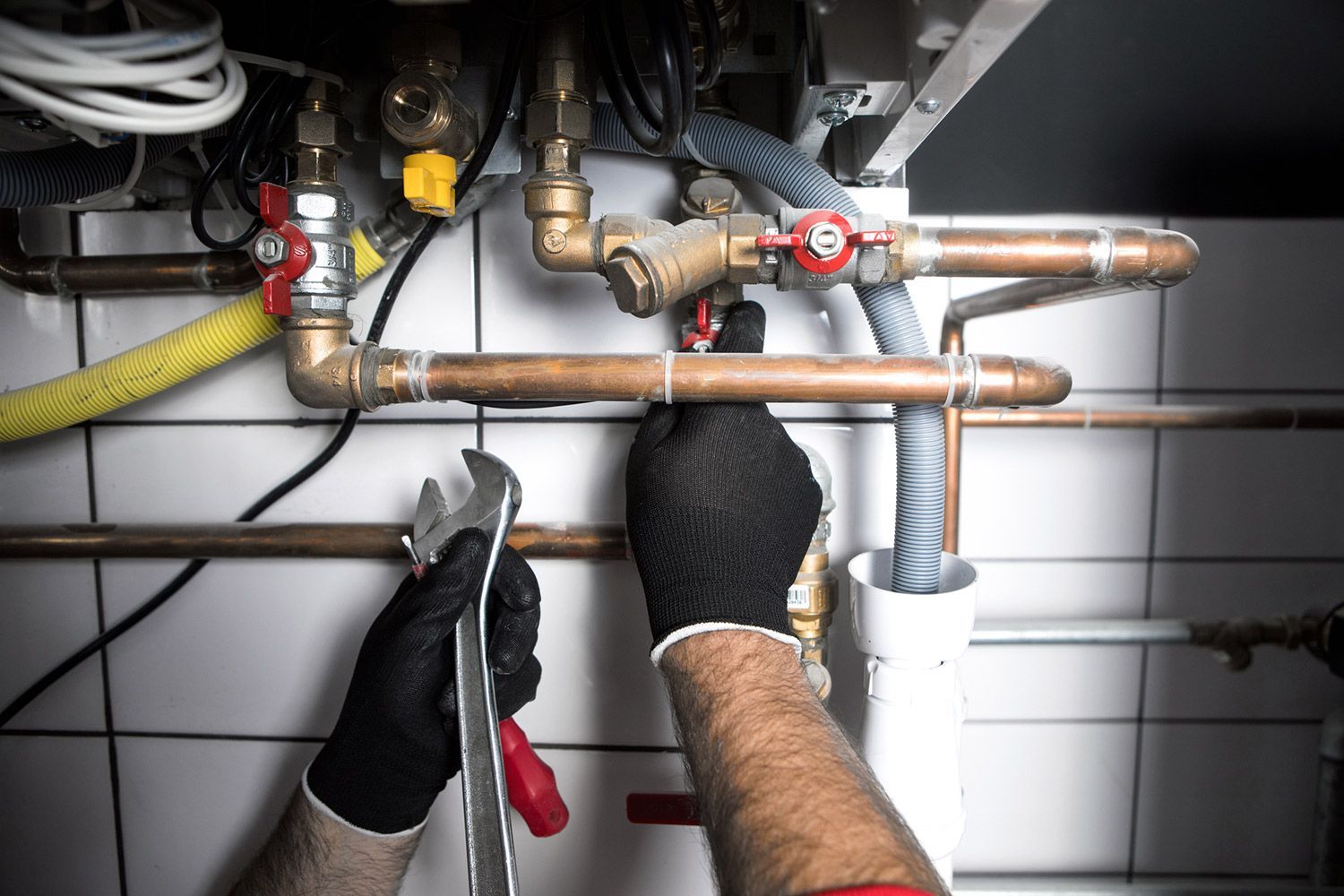
As the seasons change in the Midwest, so do the demands on your home’s plumbing system. Cold winters in Tinley Park and the surrounding suburbs can bring frozen pipes, overworked water heaters, and flooded basements if your plumbing isn’t ready. That’s why seasonal plumbing maintenance is so important. A little preparation now can save you from costly emergencies later. At Reliable Plumbing & Sewer Service Inc., we’ve put together a simple checklist every homeowner can follow to keep their plumbing in top shape before the cold weather arrives. ✅ 1. Winterize Exposed Pipes When temperatures drop, water inside exposed pipes can freeze, expand, and cause the pipes to burst. Insulate pipes in unheated areas (garages, crawl spaces, basements). Disconnect and drain garden hoses. Shut off outdoor spigots at the inside valve, then open the outside faucet to let any remaining water drain. ✅ 2. Test Your Sump Pump Melting snow and heavy fall rains can quickly overwhelm your sump pump if it’s not working properly. Pour a bucket of water into the sump pit to make sure the pump kicks on. Check the discharge line outside to ensure it’s clear of leaves, dirt, and ice. Consider a battery backup system so your pump works even during power outages. ✅ 3. Check for Slow Leaks Even small leaks can turn into major problems in freezing weather. Inspect faucets , under-sink pipes, and around toilets for drips or water spots. Look for moisture stains on walls or ceilings. Fix leaks early to prevent wasted water and hidden damage. ✅ 4. Service Your Water Heater Your water heater works harder in the winter, so make sure it’s ready. Drain a few gallons from the tank to remove sediment buildup. Check the temperature setting—it should be around 120°F for efficiency and safety. If your water heater is 10+ years old, consider having it inspected for signs of wear. ✅ 5. Clean Your Gutters and Downspouts This step is often overlooked, but clogged gutters can push water toward your foundation and sump system. Clear leaves and debris to allow water to flow freely. Make sure downspouts extend at least 5 feet away from your foundation. ✅ 6. Know Where Your Main Shut-Off Valve Is If a pipe bursts, shutting off the main water valve quickly can prevent thousands of dollars in damage. Locate your shut-off valve now, before an emergency happens. Make sure the valve is working properly and turns easily. When to Call Reliable Plumbing While some maintenance steps are DIY-friendly, others require a licensed plumber. If you notice recurring leaks, a noisy water heater, or a sump pump that’s struggling, it’s best to have it checked by a professional before winter sets in. 💡 Tip from Our Team: A few hours of seasonal maintenance can save you from costly plumbing emergencies in the middle of winter. Don’t wait until it’s too late! 📞 Call Reliable Plumbing & Sewer Service Inc. at (708) 633-9614 or schedule service online for expert plumbing maintenance and repairs in Tinley Park and the surrounding suburbs.
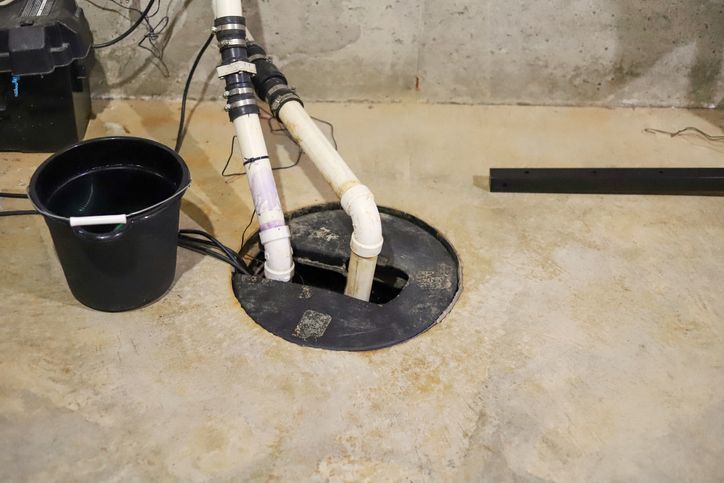
Q: What’s the difference between a plumber-installed backup sump pump and one I buy at a big-box store? A: A licensed plumber installs a professional-grade backup system that’s built to last, properly sized for your home, and backed by a warranty. Store-bought systems are often “one-size-fits-all” kits with weaker pumps, smaller batteries, and limited run-time. Q: Why does the installation matter so much? A: A backup sump pump is only as good as its installation. A plumber ensures: Correct pump sizing for your sump pit and groundwater volume. Proper discharge piping and check valve installation. Secure electrical wiring and dedicated circuits. Testing to guarantee the system actually runs when the power goes out. A handyman or DIYer may skip these steps, leading to premature failure or flooding. Q: Are professional systems stronger than store-bought ones? A: Yes. Professional systems use heavy-duty pumps and deep-cycle batteries designed for extended pumping during storms. Many store-bought kits use smaller marine batteries that run out quickly, sometimes in just a few hours. Q: What about warranties and support? A: When installed by a licensed plumber, you’ll get a manufacturer’s warranty and workmanship guarantee. If something goes wrong, you have someone to call. With store-bought systems, you’re often on your own after purchase—especially if the installation wasn’t done to code. Q: Doesn’t a store-bought system save me money? A: It might up front, but the risk is higher. A cheap system that fails during a heavy rainstorm could lead to thousands in water damage. A professionally installed system is an investment in protecting your basement and home value. Q: Bottom line—why choose a licensed plumber? A: Peace of mind. A plumber-installed backup sump pump system is: Professionally sized and installed. Reliable during storms and power outages. Backed by warranty and service. Designed to protect your home for years, not just a season.
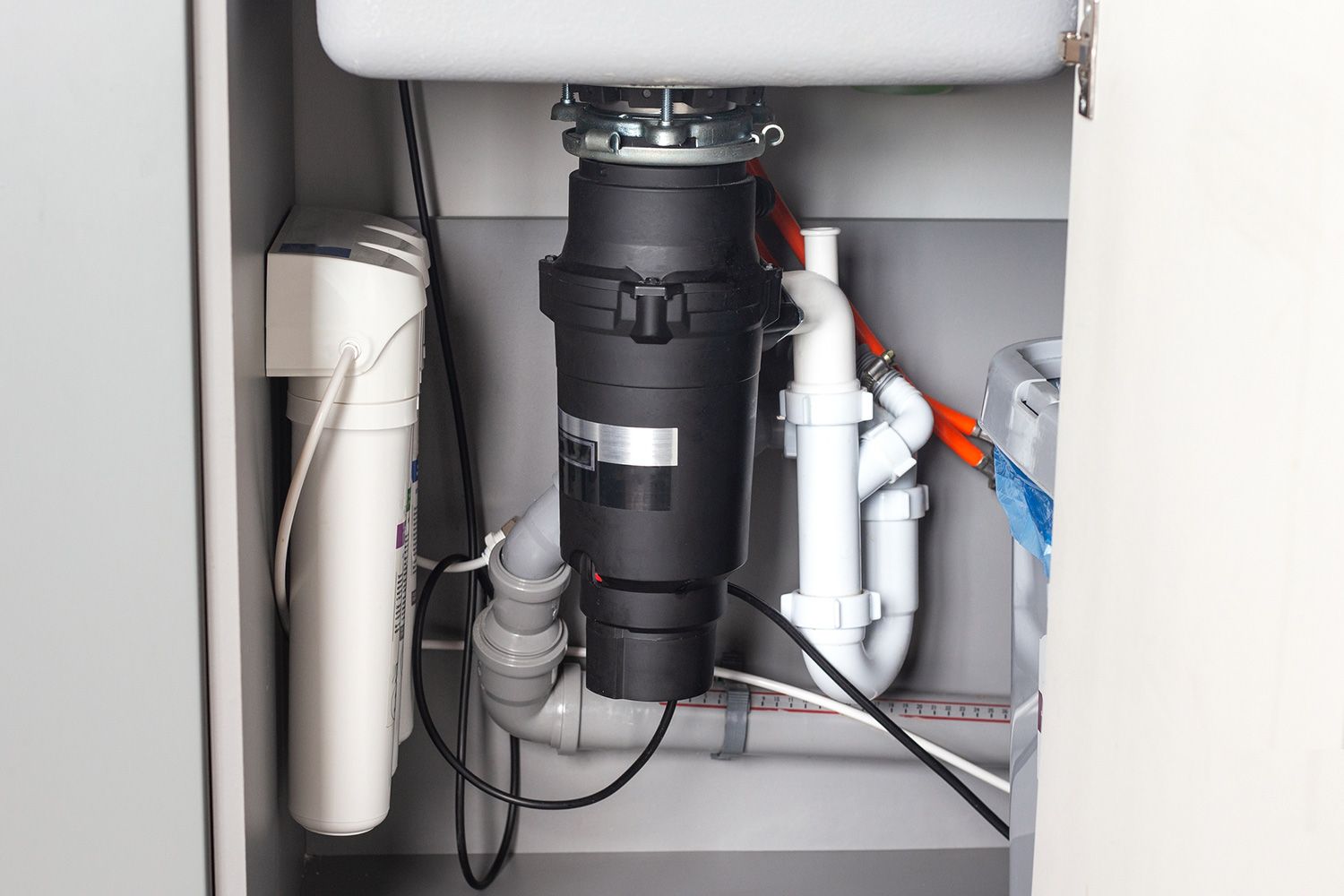
Your garbage disposal is one of the hardest-working appliances in your kitchen. It chews up food scraps, keeps your sink clear, and helps make cleanup quick. But it’s not invincible. The truth is, many clogs and breakdowns happen because of what’s put down the disposal —and even the most durable units have limits. Knowing what’s safe (and what’s not) can save you costly repairs and keep your plumbing running smoothly. At Reliable Plumbing & Sewer Service Inc ., we’ve seen it all—from disposals jammed with bottle caps to pipes clogged with pasta. Here’s what you need to know to keep yours in top shape. What’s Safe to Grind in a Garbage Disposal While disposals aren’t meant to replace your trash can, they can safely handle certain food scraps: Soft fruits and vegetables (apple slices, peeled cucumbers) Small amounts of cooked meat (cut into pieces) Citrus peels (helps freshen the unit—use sparingly) Cold water while grinding (helps move debris through pipes) What NOT to Put Down the Disposal Certain items may seem harmless but can wreak havoc on your disposal and plumbing: 1. Potato Peels & Starchy Foods When ground up, they turn into a sticky paste that clings to the blades and pipes. 2. Grease, Oil, and Fat These cool and solidify in your pipes, creating blockages that worsen over time. 3. Fibrous Vegetables Celery, corn husks, and asparagus fibers can wrap around the blades and jam the motor. 4. Eggshells The membrane inside eggshells can tangle around the grinder, and the shell grit can stick in pipes. 5. Pasta and Rice They expand with water and can fill the trap, causing slow drains or backups. Best Practices for Garbage Disposal Maintenance Run Cold Water While Grinding This helps solidify any grease so it’s chopped up and flushed away instead of coating your pipes. Clean the Disposal Regularly Grind a few ice cubes to knock debris off the blades, then follow with citrus peel for freshness. Feed Items Slowly Don’t overload the disposal—give it time to grind each batch. Keep It Running a Few Seconds After Food Clears This ensures everything washes fully into the main drain line. When to Call Reliable Plumbing If your garbage disposal makes unusual noises, clogs frequently, or won’t turn on, it’s time for professional help. We can clear the blockage, repair the unit, or replace it if needed. 💡 Tip from Our Team: Treat your garbage disposal like a helper—not a trash can. The better you care for it, the longer it will serve you. 📞 Call Reliable Plumbing & Sewer Service Inc . at (708) 633-9614 or schedule service online for expert garbage disposal repair and drain cleaning in Tinley Park and the surrounding suburbs.







